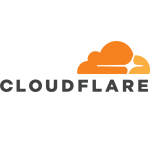What is our primary use case?
The platform is a firewall and Unified Threat Management (UTM) solution. We have implemented it in our production environment, particularly with VPN configurations. It proves to be an excellent tool for safeguarding our perimeter network. One of its standout features is its centralized management server, allowing us to manage multiple devices using a single console efficiently.
What is most valuable?
The platform's most valuable features are perimeter network security and URL filtering. These functionalities are crucial for us, particularly because we operate in a highly restrictive environment regarding internet access.
What needs improvement?
While they offer a comprehensive bundled solution, some users may prefer on-premise deployments for certain features, such as URL filtering. Currently, Forcepoint offers WebSense for URL filtering in the cloud, but users who prefer on-premise solutions may find this lacking. They could improve these particular areas.
For how long have I used the solution?
We have been using Forcepoint Next Generation Firewall for 15 years.
What do I think about the stability of the solution?
In terms of stability, the solution is quite robust. We haven't encountered any major issues, and like any other firewall, it operates reliably 24/7 without significant disruptions. However, there have been occasions when units required replacement, especially if covered under warranty. Additionally, we've implemented high-availability configurations to minimize downtime.
What do I think about the scalability of the solution?
In terms of scalability, it depends on the specific model being utilized. Basic models may have limitations and may need to be more scalable. However, mid to high-range firewall models, such as the Next Generation ones, are stackable and scalable. It means multiple branches can seamlessly run the same solution without encountering any issues.
In our organization, approximately 200 users utilize the solution. It is extensively and regularly used as our users rely heavily on URL filtering.
How are customer service and support?
Although they offer a premium technical support option, which is costly, we have yet to opt for it during our years of using the product. There can sometimes be a delay in receiving support, but typically, they respond within 24 to 48 hours. Despite this, the quality of support provided has been excellent.
How was the initial setup?
The initial setup of Forcepoint is straightforward for trained engineers, but it may appear complex for those without specific training. The deployment process typically involves mounting the firewall and booting it up with an initial setup from a USB boot device. From there, the installation process continues according to the specific requirements and configurations.
In our case, it took more than 15 to 20 days to refine policies and access configurations to meet our specific needs. However, it typically takes less than one to two hours for the firewall to be functional and up and running.
Once you have clarity on what needs to be deployed and what is best for their operations, it typically only requires the support of one or two Forcepoint engineers to assist in deploying the solution.
What about the implementation team?
We took assistance from integrators to implement the product.
What was our ROI?
The product generates a return on investment.
What's my experience with pricing, setup cost, and licensing?
It is an affordable product. We purchase its yearly license.
Which other solutions did I evaluate?
Initially, we used Symantec Firewall, which was many years ago. About eight years ago, we transitioned to Stonesoft, the parent company of Forcepoint. We decided to use Forcepoint primarily due to its reputation as a top-notch firewall solution for security.
What other advice do I have?
We utilize Forcepoint to manage secure remote access primarily through VPN terminals and VPN clients.
The SD-WAN capability of Forcepoint did not directly support our network performance, as we did not proceed with its implementation. We were in discussions about enabling SD-WAN but needed help executing the plan. Eventually, due to the end-of-life status of our product, we transitioned to Fortinet as our vendor for SD-WAN solutions.
Deploying and managing the platform was not particularly straightforward. It necessitated experienced engineers trained in Forcepoint Next Generation Firewall. Once set up, there were no significant issues or challenges in day-to-day management.
They offer templates that provide detailed reports categorized by user, device, and internal network access.
The value and impact of using this solution lie in the assurance of protection and security. Ultimately, the greatest return on investment (ROI) comes from safeguarding the business from potential attacks and vulnerabilities.
I rate it a nine out of ten.
Disclosure: My company does not have a business relationship with this vendor other than being a customer.



















